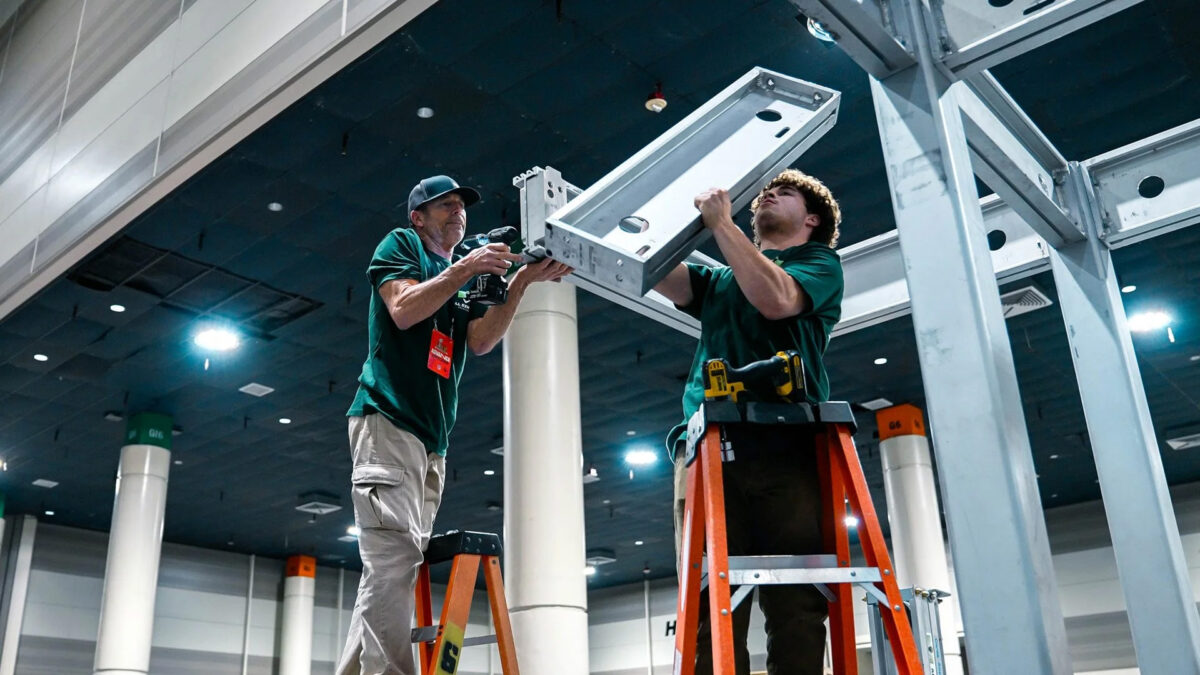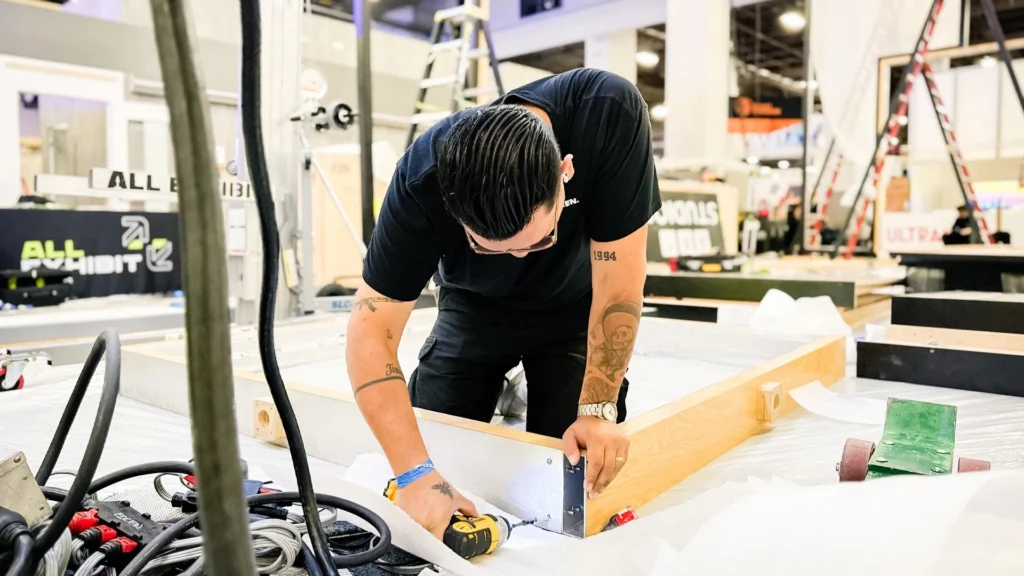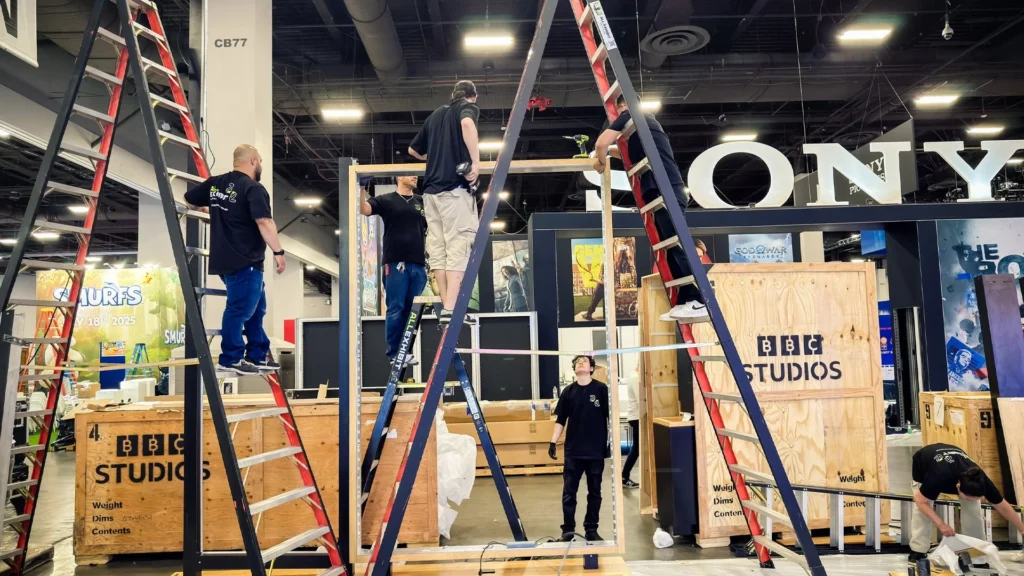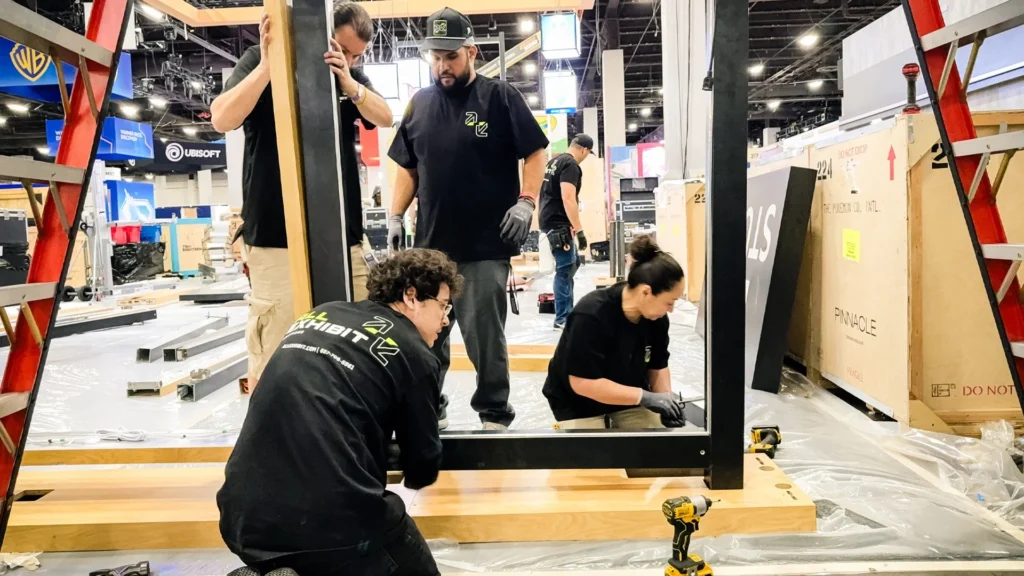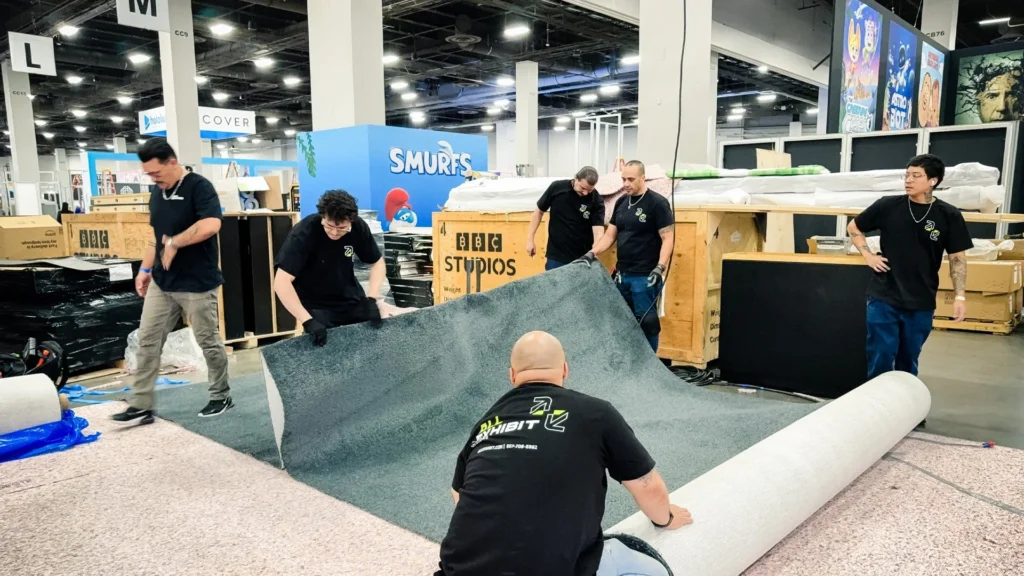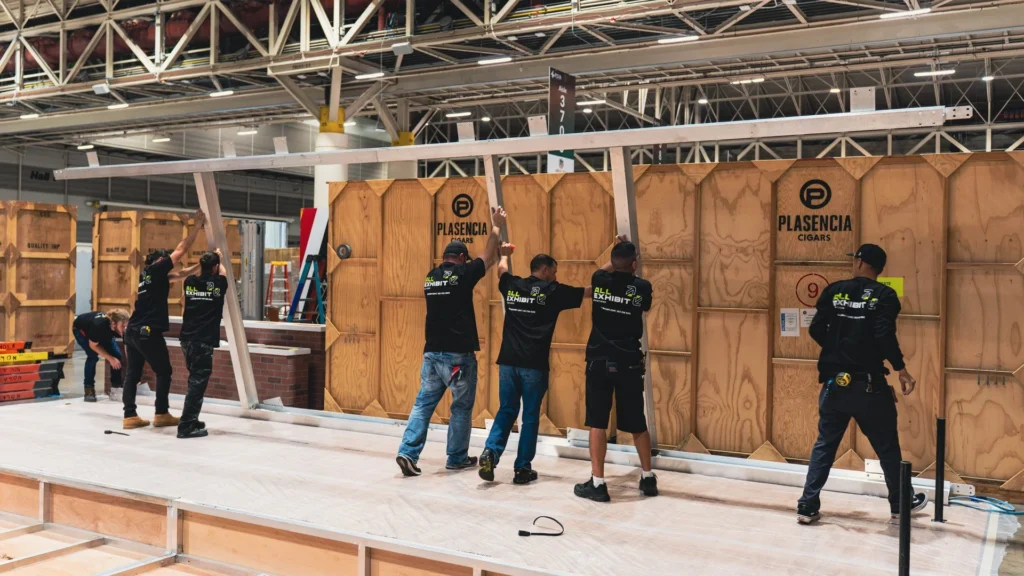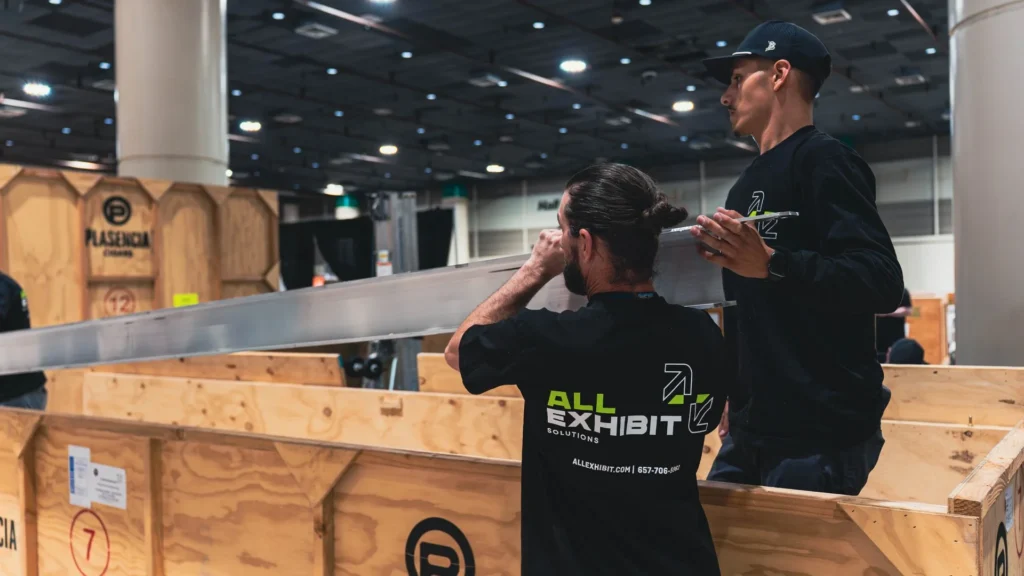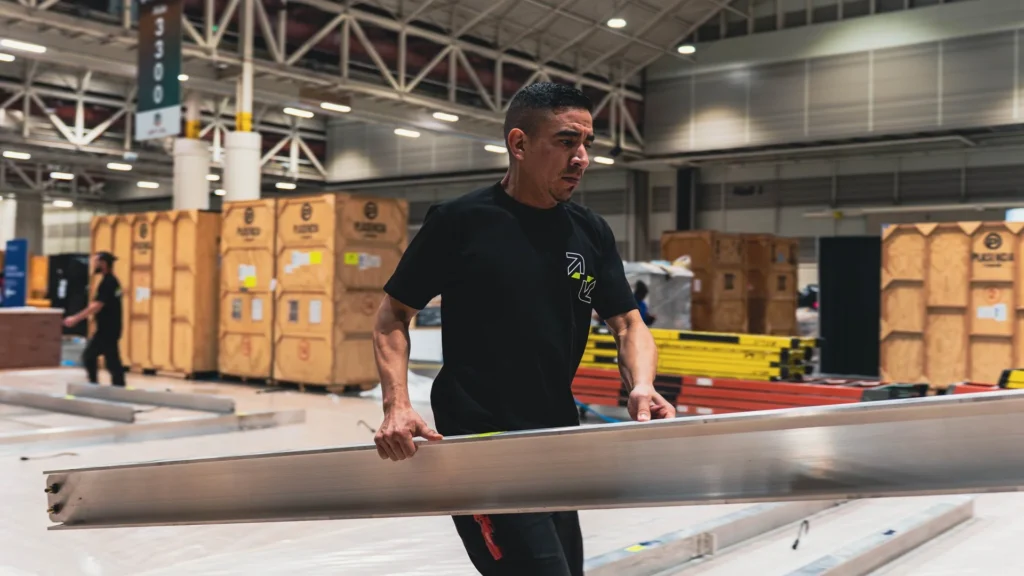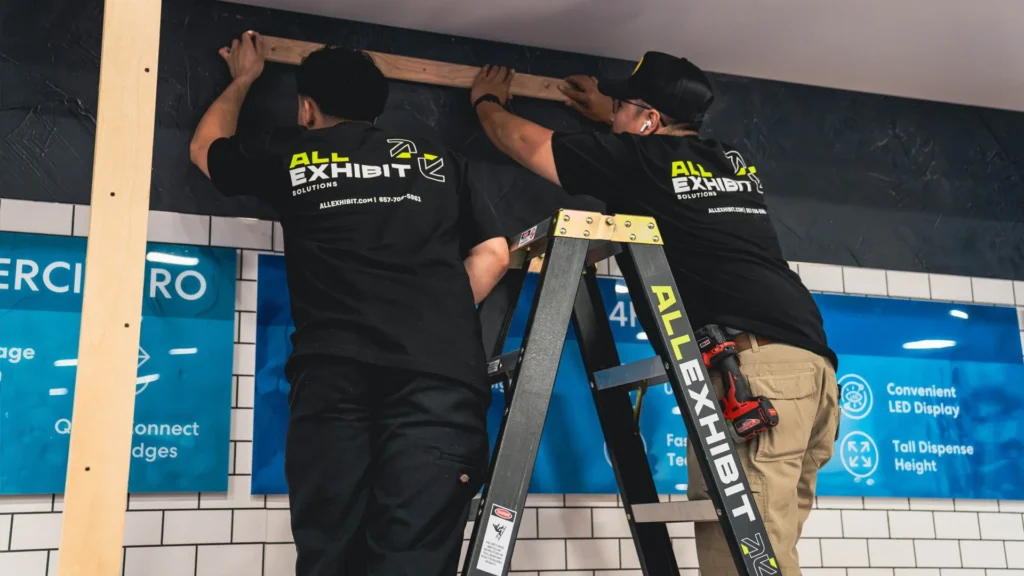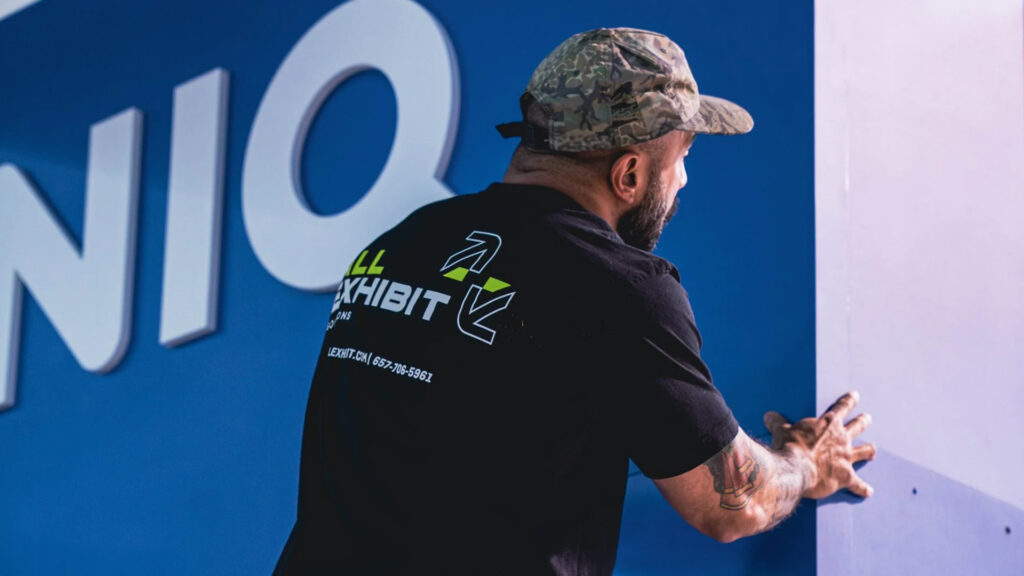- Introduction
- What Does a Trade Show Coordinator Do?
- What Skills Do You Need to Become a Trade Show Coordinator?
- Education and Experience: How to Get Started
- How to Gain Experience in Trade Show Coordination
- What a Trade Show Coordinator Does Day-to-Day
- Industry Trends and Evolving Responsibilities
- How All Exhibit Solutions Supports Trade Show Coordinators
- Is Trade Show Coordination Right for You?
Introduction
Trade shows are a dynamic and fast-paced environment where businesses showcase their products, make connections, and generate leads. Behind every successful event is a trade show coordinator who ensures everything runs smoothly—from logistics and setup to marketing and lead generation. If you have strong organizational skills, enjoy problem-solving, and thrive in a high-energy setting, becoming a trade show coordinator might be the perfect career for you.
At All Exhibit Solutions, we work closely with trade show coordinators to bring events to life through seamless booth installation and dismantlement. If you’re looking to break into the industry, this guide will walk you through everything you need to know about the role, skills required, and how to get started.
What Does a Trade Show Coordinator Do?
A trade show coordinator is responsible for planning, managing, and executing trade show events for businesses, exhibitors, or venues. They handle everything from booth logistics to marketing, making sure that the trade show is a success for their clients.
The job involves working with multiple stakeholders, including vendors, designers, marketing teams, and venue staff, to create an engaging and organized event. Coordinators oversee exhibit setup, manage budgets, schedule shipping, and ensure that every detail aligns with the overall trade show strategy.
Because trade shows are time-sensitive events, a coordinator must be able to anticipate potential challenges and resolve issues quickly. Whether it’s a missing shipment, a last-minute booth change, or technical difficulties with an exhibit, a skilled trade show coordinator can handle these situations with ease.
What Skills Do You Need to Become a Trade Show Coordinator?
Trade show coordination is a highly demanding role that requires a blend of technical, organizational, and interpersonal skills. Some of the most important skills include:
- Organization and Time Management – Trade shows involve multiple moving parts, including exhibitor registration, booth installation, marketing promotions, and transportation logistics. A great coordinator stays on top of deadlines and ensures everything runs on schedule.
- Problem-Solving Ability – No trade show goes exactly as planned. A coordinator must be quick on their feet, capable of troubleshooting issues such as booth delays, exhibitor concerns, or unexpected venue restrictions.
- Communication Skills – Coordinators must communicate effectively with exhibitors, vendors, venue staff, and marketing teams. They need to ensure that everyone is aligned on deadlines, expectations, and event requirements.
- Attention to Detail – Overlooking a single element in a trade show setup can lead to logistical nightmares. Ensuring that all materials arrive on time, that booths are installed correctly, and that schedules are followed requires meticulous attention to detail.
- Budget Management – Trade show coordinators must allocate budgets efficiently, negotiating costs with vendors and finding cost-effective solutions without compromising quality.
- Marketing Knowledge – Understanding how to promote trade show participation, engage attendees, and follow up with leads is crucial for maximizing a company’s return on investment.
Education and Experience: How to Get Started
Becoming a trade show coordinator doesn’t require a specific degree, but having a background in event planning, marketing, business, or hospitality can give you a competitive edge. Many trade show professionals start with internships or entry-level positions in event planning or marketing before transitioning into trade show management.
Some coordinators also obtain industry certifications, such as the Certified in Exhibition Management (CEM) designation, which can help establish credibility and demonstrate expertise in trade show planning.
Hands-on experience is just as valuable as formal education. Volunteering at industry events, working with trade show vendors, or assisting with event logistics can provide practical knowledge and valuable networking opportunities.
How to Gain Experience in Trade Show Coordination
One of the best ways to get started in this field is by working in roles that expose you to trade show logistics and event planning. Many professionals begin their careers in:
- Event Planning – Working as an event planner gives you experience in managing venues, coordinating logistics, and handling vendors.
- Marketing and Sales – Trade shows are a major marketing investment for businesses. Experience in digital marketing, brand promotion, or sales strategy can help you understand how trade shows fit into a company’s growth plan.
- Vendor and Exhibit Services – Companies that provide trade show booth installation, AV equipment, or exhibit design give employees firsthand exposure to trade show logistics and vendor management.
- Corporate Event Coordination – Some businesses have internal teams dedicated to organizing trade show participation. Working for a corporation’s event team can provide valuable experience in budgeting and marketing strategies.
Once you gain experience in these roles, transitioning into a trade show coordinator position will be much easier.
What a Trade Show Coordinator Does Day-to-Day
A trade show coordinator’s daily tasks vary depending on the stage of event planning, but typical responsibilities include:
- Pre-Event Planning – Coordinating booth reservations, securing venue permits, designing event layouts, managing budgets, and working with vendors to ensure all materials arrive on time.
- On-Site Event Management – Overseeing booth setup, troubleshooting issues, handling exhibitor concerns, managing signage and promotional materials, and ensuring the event runs according to schedule.
- Post-Event Analysis – Gathering feedback, analyzing event success, reviewing budgets, and preparing reports to measure trade show ROI.
A trade show coordinator must be able to juggle multiple responsibilities at once while staying calm under pressure.
Industry Trends and Evolving Responsibilities
The trade show industry is constantly evolving, with new trends shaping how coordinators approach event planning. Some current trends include:
- Hybrid Trade Shows – Many companies now combine in-person exhibits with digital components, such as live-streamed demos or virtual booths. Coordinators need to be tech-savvy and understand how to integrate these elements.
- Sustainable Trade Show Practices – Companies are looking for eco-friendly alternatives for booth materials, digital promotions instead of printed flyers, and sustainable giveaways to minimize waste.
- Enhanced Attendee Engagement – Interactive exhibits, digital touchpoints, and immersive booth designs are becoming more common, requiring coordinators to think creatively about audience engagement.
Keeping up with industry trends ensures that trade show coordinators stay ahead of the competition and provide innovative solutions for exhibitors.
How All Exhibit Solutions Supports Trade Show Coordinators
All Exhibit Solutions understands that trade show coordinators have demanding roles that require precision and efficiency. That’s why we offer expert booth installation and dismantlement services, taking the stress out of exhibit setup and allowing coordinators to focus on event success.
Our team specializes in custom trade show booth installations, ensuring every exhibit is built to meet the client’s branding and engagement goals. With years of experience in trade show logistics, we handle everything from transportation and storage to on-site setup and post-event breakdown.
Working with professionals like All Exhibit Solutions ensures that trade show coordinators can execute flawless events without the hassle of managing booth logistics on their own.
Is Trade Show Coordination Right for You?
Trade show coordination is a fast-paced and rewarding career that requires organization, creativity, and adaptability. If you enjoy managing details, solving problems, and bringing people together for successful events, this career path could be a great fit.
By gaining relevant experience, building a strong professional network, and staying up to date on industry trends, you can establish yourself as a highly sought-after trade show coordinator.
And if you need expert support for your next event, All Exhibit Solutions is here to help. Contact us today to learn how we can assist with seamless booth installation and dismantlement, so you can focus on creating impactful trade show experiences.

